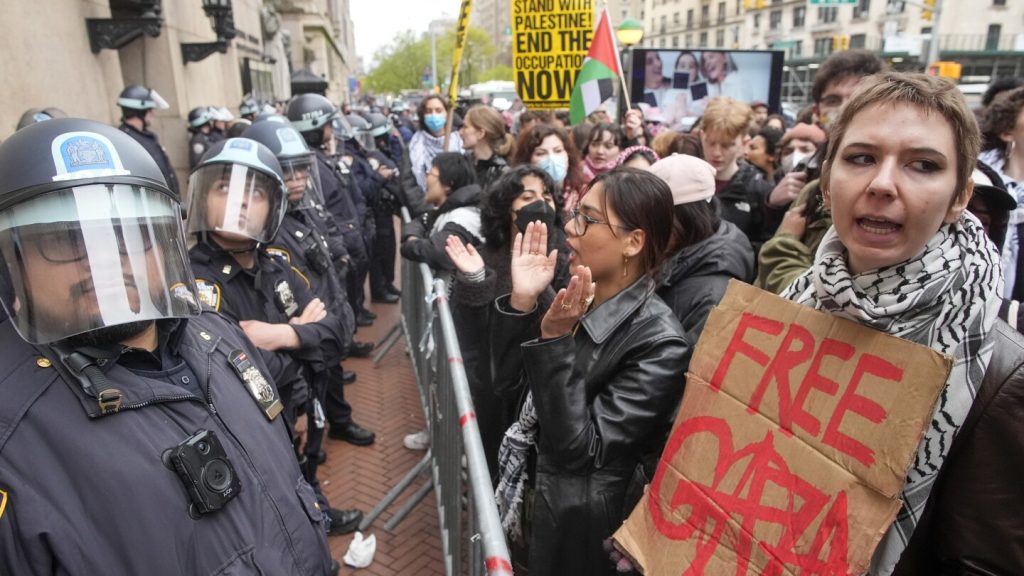On Thursday, New York police removed a pro-Palestinian protest encampment at Columbia University and arrested over 100 demonstrators, including Isra Hirsi, the daughter of U.S. Rep. Ilhan Omar. The protesters were opposing Israeli military action in Gaza and demanding the school divest from companies they claim profit from Israeli apartheid. New York Mayor Eric Adams stated that while students have the right to free speech, they do not have the right to violate university policies and disrupt learning on campus. The city was asked by university officials to remove the encampment.
Columbia University’s president, Nemat Shafik, issued a statement saying that the school warned protesters on Wednesday that they would be suspended if the encampment was not removed. The decision was made on Thursday to involve the police and clear out the demonstrators. Shafik mentioned that the individuals who established the encampment violated several rules and policies and that the university had tried to engage with their concerns and offer to continue discussions if they dispersed. The university was still identifying students involved in the protest on Thursday, with additional suspensions expected.
Police Commissioner Edward Caban stated that the arrests were peaceful and the protesters were cooperative. After the initial removal, pro-Palestinian protesters reorganized on campus, demanding full amnesty for all students disciplined for their involvement in the encampment or the movement for Palestinian liberation. The protesters chanted “Shame” as they continued their demonstration. Email and voice messages were left with Rep. Ilhan Omar’s office seeking comment on the situation at Columbia University.
The protest at Columbia University highlights the ongoing tensions surrounding the Israel-Palestine conflict and the impact it has on university campuses in the United States. This incident also raises questions about the limits of free speech and the rights of students to protest against actions they deem unjust. The involvement of prominent figures like Rep. Ilhan Omar’s daughter adds a layer of complexity to the situation, bringing national attention to the issue. It remains to be seen how the university and the students involved will respond to the aftermath of the protest and subsequent arrests.
As the dust settles from the clash between protesters and authorities at Columbia University, the broader conversation around Palestinian rights and divestment from companies associated with Israeli apartheid continues. The actions taken by both the university and the protesters have sparked discussions about the role of academic institutions in promoting social justice and supporting student activism. The outcome of this event may have lasting effects on the campus climate at Columbia University and beyond, as students and administrators grapple with the aftermath of the protest and the resulting arrests. The calls for full amnesty for disciplined students indicate a commitment to continue advocating for Palestinian liberation despite the obstacles they face.


